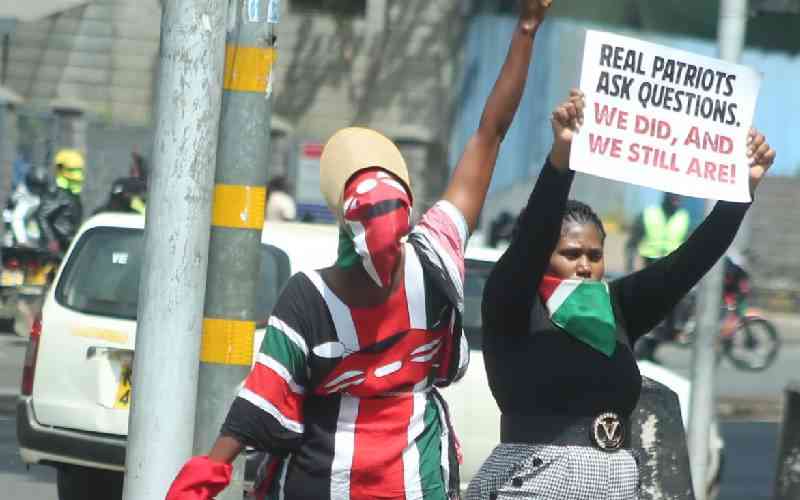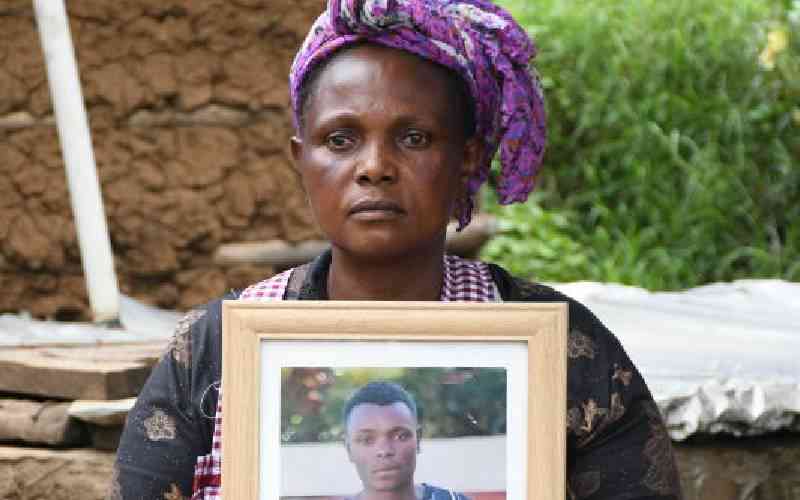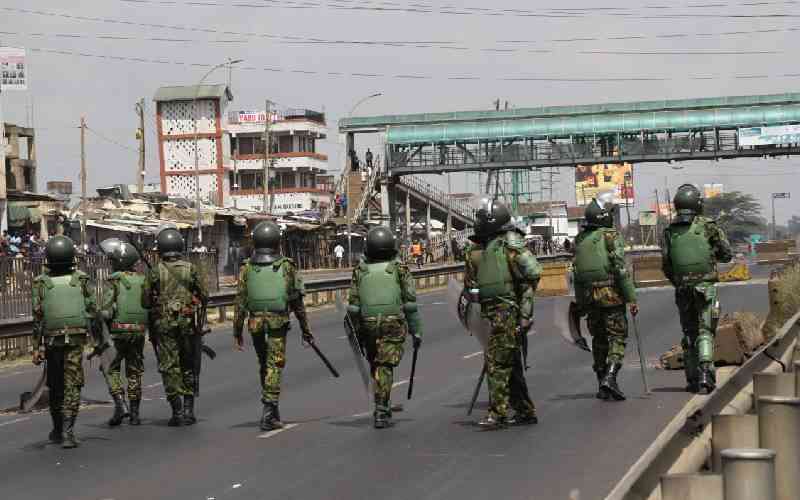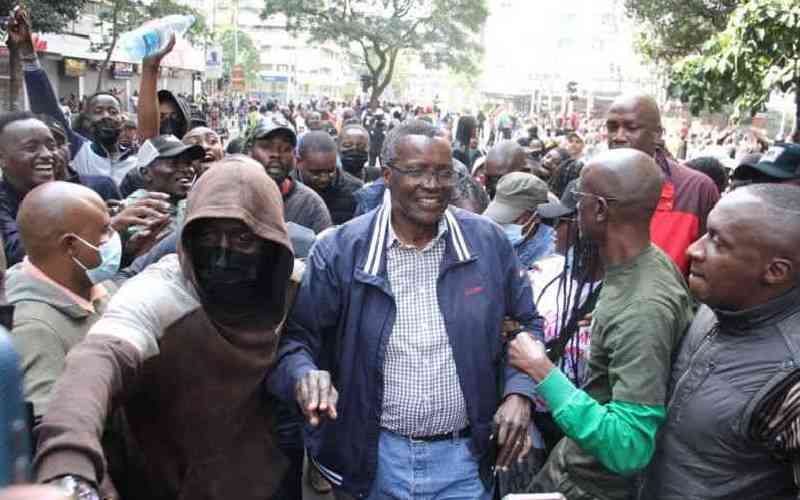Kenyan Protests and Government's Response
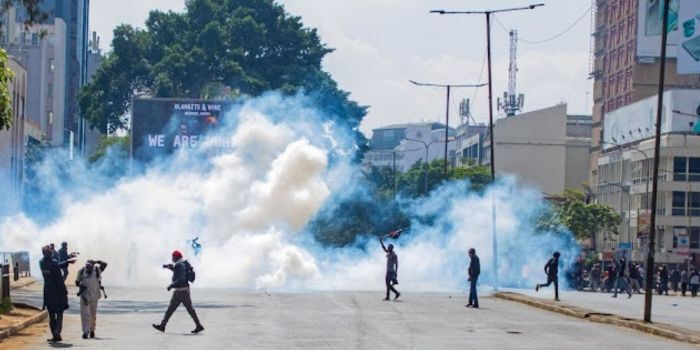
A significant ruling by the High Court has placed new restrictions on police tactics during crowd control, particularly concerning peaceful protesters seeking medical attention or shelter. In a decision issued on Friday, June 27, Justice Bahati Mwamuye granted conservatory orders that prohibit the police from deploying tear gas, water cannons, or similar chemicals against demonstrators who are accessing or delivering medical services, or those who have taken shelter in hospitals, ambulances, emergency medical centers, and places of worship. The ruling also specifically bars the use of tear gas or similar chemicals in enclosed or poorly ventilated spaces, such as vehicles or buildings, where protesters may have sought refuge, thereby protecting both medical personnel and patients from being targeted.
This landmark ruling stems from a petition filed by the Kenya Human Rights Commission (KHRC), which sought urgent intervention to safeguard the constitutional rights to life, health, and peaceful assembly. The KHRC detailed alarming allegations that during protests held in Nairobi on Wednesday, June 25, 2025, police deliberately targeted safe spaces to inflict greater harm on injured protesters and medical staff. They cited an incident where officers allegedly stormed a medical camp at Jamia Mosque in Nairobi, firing tear gas canisters at a medical response center and injuring patients and personnel. The KHRC further noted that similar actions occurred during protests on June 25, 2024, when tear gas was reportedly lobbed into hospitals and churches, including Nairobi’s All Saints Cathedral, targeting injured individuals. The petition also contended that police had actively blocked roads leading to Kenyatta National Hospital, suggesting a deliberate effort to maximize harm. The KHRC has publicly welcomed the High Court’s ruling, hailing it as a crucial step towards protecting protesters in need.
Amidst these legal developments, President William Ruto has vociferously condemned the recent demonstrations witnessed on Wednesday, June 25, describing them as a calculated effort to instigate anarchy and cause widespread destruction across the nation. Speaking on Friday afternoon during World MSME Day in Nairobi, the Head of State characterized the events not as peaceful protests, but as “hooliganism disguised as peaceful processions.” While expressing his frustrations, President Ruto offered to step down if those opposing his governance could present a demonstrably better plan for the country, urging Kenyans to seek political change through the ballot in the 2027 general election rather than resorting to inciteful slogans and destructive rallies. He lamented the extensive damage caused by the burning and looting of businesses, estimating that investments worth billions were wiped out in mere hours, with hard-working traders and entrepreneurs being the primary victims. Ruto further accused certain opposition politicians of inciting youthful Kenyans into these demonstrations, warning of severe consequences for those sponsoring the protests. He subsequently ordered Inspector General of Police Douglas Kanja to immediately expedite investigations and ensure the swift and decisive prosecution of all individuals involved in the destruction and looting of property during the June 25 protests.
President Ruto specifically appealed to the protesting youth, commonly referred to as 'Gen Z', to cease the destruction of the country under the guise of activism. While acknowledging their expressed love for Kenya, their disdain for leaders, and demands for his resignation, he questioned the methods employed. He warned that protests driven by resentment and the pursuit of social media clout could spiral uncontrollably, severely damaging the nation’s fragile economy and social cohesion. Ruto cautioned against romanticizing street protests, stating that if the current trend of destruction continues, it could spread beyond downtown areas to affluent neighborhoods. He also addressed the renewed debate surrounding presidential term limits, emphasizing that the Kenyan Constitution already provides a clear framework for tenure, allowing for a maximum of two terms.
The government has also reported significant damage to national infrastructure. Dr. Belio Kipsang, Principal Secretary for Immigration and Citizen Services, confirmed that during the violent protests on Wednesday, June 25, in Nyandarua County, over 1,000 national identity cards were destroyed when protesters attacked the National Registration Bureau (NRB) office located within the Deputy County Commissioner’s compound in Ol Kalou. This incident also resulted in the destruction of two live capture biometric kits and other essential government equipment, disrupting key public services. Dr. Kipsang described the assault on the NRB office as an attack on “the soul of a nation,” undermining the government’s ability to serve and protect its citizens. While assuring that citizen data remains protected and recoverable, emergency mobile registration units are being deployed to assist affected residents in replacing their lost identification cards. In Nyandarua County, the aftermath of the protests also saw 26 county government vehicles torched at the Olkalou sub-county offices, along with 18 county government motorbikes.
The scale of the destruction and chaos was further elaborated by Interior Cabinet Secretary Kipchumba Murkomen, who reported that nine police stations were attacked, with five of them torched, and firearms stolen from Dagoretti Police Station. Murkomen stated that at least 10 people were killed and over 400 injured, including 300 police officers, while 28 government vehicles, 88 police vehicles, and 65 private cars were destroyed. Businesses in major towns including Nairobi, Nakuru, Naivasha, Ol Kalou, and Bungoma reported heavy losses due to looting and arson. Specific incidents included 50 armed individuals storming Jadelika Hotel in Bungoma, looting food and vandalizing property, and staff sustaining injuries. In Molo, protesters broke into a sub-county office, ransacked records, and set five government vehicles, including a fire engine, ablaze. In Ol Kalou, a police station, 26 government vehicles, motorbikes, and a county library were torched following reports of a protester being shot.
During his assessment visit to affected traders, CS Murkomen encountered one businesswoman who claimed to have lost stock worth KSh 2 million, including machines, pressure cookers, thermos flasks, and blenders, a claim that reportedly elicited a hint of disbelief from the CS. The woman also stated that her workers were injured and lost their phones, and four CCTV cameras and a TV screen were stolen. Murkomen pledged to use any captured CCTV footage to identify and apprehend the perpetrators. Separately, singer Arrow Bwoy reported being brutalized and injured by police officers during the Nairobi protests, highlighting concerns about police brutality and prompting calls for unity and an end to such actions. The government continues to emphasize that while the Constitution protects the right to peaceful protest, violence and destruction of lives and livelihoods will not be tolerated, with perpetrators facing full prosecution under the law.
